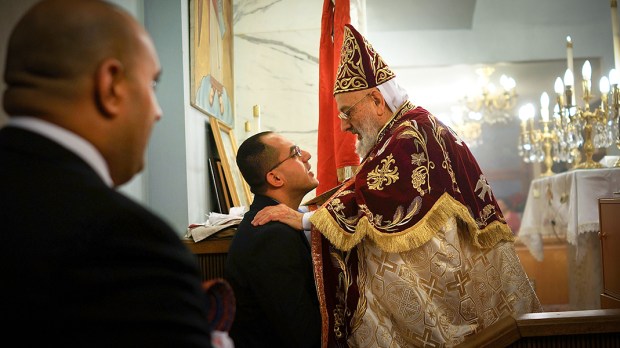Could open Christian worship soon be allowed in Saudi Arabia?
Recent news that the Islamic kingdom will be allowing women to drive has now been followed by comments from a Saudi leader that his country’s official religion should be more tolerant.
Crown Prince Mohammed bin Salman said that the return of “moderate Islam” is key to his plans to modernize the Gulf kingdom, according to the BBC.
He told reporters that a youthful Saudi population wants a “life in which our religion translates to tolerance.” He also vowed to “eradicate the remnants of extremism very soon.”
Saudi Arabia is often accused of being the source of much of the extremism that drives movements such as al Qaeda and the Islamic State of Iraq and Syria. Critics point to the Wahabbist sect of Sunni Islam as one of the strictest and harshest Muslim approaches, and charge that Saudi Arabia exports fundamentalist clerics to other parts of the world and funds mosques and educational initiatives that advance radically extreme interpretations of the Quran.
In the Kingdom itself, many foreign workers come from places like Catholic-majority Philippines, yet are not allowed to practice their religion openly in the land where Islam was founded.
But Prince Mohammed argued that Saudi Arabia “was not like this before 1979.” That was the year of the Islamic revolution in Iran. Militants occupied Mecca’s Grand Mosque, and afterwards, public entertainment in Saudi Arabia was banned and clerics were given more control over public life. Islamic codes of behavior and dress are strictly enforced. Saudi Arabia enforces sex segregation in many public places and women remain marginalized in the workplace, Bloomberg explained.
Now, however, with 70 percent of the Saudi population under 30, the prince, who is 32, said “we will not spend the next 30 years of our lives dealing with destructive ideas. We will destroy them today and at once.”
“We are returning to what we were before: a country of moderate Islam that is open to all religions, traditions and people around the globe,” he said. “We want to live a normal life. A life in which our religion translates to tolerance, to our traditions of kindness.”
He made his remarks at an economic conference in Riyadh where he announced the investment of $500 billion in a new city and business zone on Saudi Arabia’s northwestern Red Sea coast, near Egypt and Jordan.
Mohammed’s remarks were based on the government’s plan to economically and culturally transform the country, detailed in Vision 2030 and the National Transformation Program 2020. They are expected to meet resistance. Abdul Latif al-Sheikh, the former head of the religious police, told Bloomberg that Saudi Arabia will never be like Dubai, where alcohol and nightclubs are permitted, women can drive and appear in public uncloaked, and no sex segregation is imposed.
“We have traditions and customs,” said al-Sheikh. “The people would not accept this. We have to take what is good from the world and leave out what is not.”
But the United States Commission on International Religious Freedom said in its 2017 annual report that during the past year, because of the Vision 2030 efforts, religious freedom conditions improved in certain areas, including a significant decrease in power of the Commission for the Promotion of Virtue and Prevention of Vice, colloquially known as the religious police; a continued government commitment to textbook and curricula reform; and increased efforts to counter extremist ideology at home and abroad.

